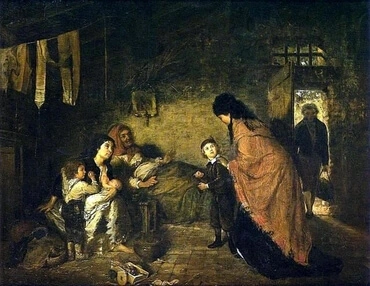Genesi 3:3
To many Protestant and Evangelical Italians, the Bibles translated by Giovanni Diodati are an important part of their history. Diodati’s first Italian Bible edition was printed in 1607, and his second in 1641. He died in 1649. Throughout the 1800s two editions of Diodati’s text were printed by the British Foreign Bible Society. This is the more recent 1894 edition, translated by Claudiana.
Buono

Sembra piuttosto circolare dire che il "bene" nella Bibbia rappresenta il bene, ma in senso generale è vero!
Il caso è questo: Il Signore è l'amore stesso dato forma ed espressione come saggezza stessa, e che l'Amore Divino e la Saggezza Divina scendono in noi, nel mondo e nella Bibbia in un flusso senza fine con una varietà infinita. L'Amore Divino dà origine ai nostri amori, ai nostri affetti, ai nostri desideri di bene e alla gioia che possiamo provare; la Saggezza Divina dà origine ai fatti, alla conoscenza, all'intelligenza, alla comprensione e alla saggezza umana. E più riusciamo a portare questi due aspetti della nostra vita in armonia, più elevati possiamo diventare - il che ci renderà a sua volta più felici, più utili e, in definitiva, più angelici. E, naturalmente, più ci allontaniamo, più la verità diventa falsità e l'amore diventa amor proprio. Quindi questa danza tra il desiderio di essere buoni e la comprensione della verità è la forza motrice della vita umana, e quasi tutto nella Bibbia si riferisce ad essa a livello spirituale.
Quando qualcosa è chiamato "buono" nella Bibbia, sta generalmente descrivendo la forma più alta e più pura di amore possibile in qualsiasi stato spirituale si stia discutendo. Questo è spesso riassunto semplicemente come "bene" o come "carità" - che è uno stato di cura, o amore verso il prossimo.
(Notae: Arcana Coelestia 2180, 3049, 3080, 5213, 5949, 6720, 6856, 10575, 10619; Apocalisse Spiegata 730 [29], 863 [15])
Arcana Coelestia #2181
2181. 'And gave it to the servant, and he hastened to make it ready' means the joining of this good to rational good, 'the servant' meaning the natural man. This is clear from the meaning of 'a servant' as one who ministers and administers. And that which is ministered or effected is the making ready of the young bull, by which natural good is meant, as has been shown. To perceive the implications of this more clearly one should recognize that there exists in every person an internal, a rational in a middle position, and a natural, and that these three are distinct and separate from one other, as dealt with in 1889, 1940. One should also recognize that these should be made to conform so that they make one, thus so that rational good conforms with natural good, and recognize that unless they do conform and so are joined together, there cannot be any Divine perception. Since the Lord's Divine Perception is the subject here, it is the conformity and conjunction of the two kinds of good that are meant in the internal sense by the words that appear here.






